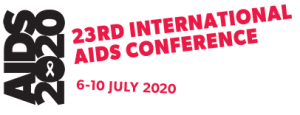Satellite Organizer: UNAIDS – IAS
Satellite Description: Less than 10 years remain to reach the SDG goal of ending AIDS by 2030. UNAIDS next global AIDS strategy will be the road map for the world to end AIDS as a public health threat by 2030. Achieving the End of AIDS contributes to many of the Sustainable Development Goals, including health, gender equality, justice and sustainable financing. The new UNAIDS strategy, with new global targets for 2025 and resource needs, will inform the next United Nations General Assembly High-Level Meeting on Ending AIDS and the next UNGA Political Declaration on AIDS in 2021.
Progress on HIV remains uneven across and within countries. While some countries have made remarkable progress, many of the global 2020 targets will not be reached. Millions of people continue to face barriers in accessing HIV treatment and prevention. The legal and economic barriers that communities already vulnerable to HIV face are often underpinned by the persistent reality of discrimination, homophobia, transphobia, racism and criminalization.
The next UNAIDS Strategy will need to be ambitious, visionary, data-driven and evidence-informed. It needs to be transformative to address the causes of vulnerability to HIV; providing access to prevention and treatment for people vulnerable to HIV, without addressing their vulnerability is neither sustainable nor ethical. The next UNAIDS Strategy must re-commit and re-energize people and partnerships from all sectors and at all levels to reach the goal of Ending AIDS by 2030. In the context of COVID-19 pandemic, the rise in social justice movements such as Black Lives Matter and #metoo help to redefine the kind of broad political and social mobilization it will take to end AIDS by 2030. It will require our renewed collective energy, innovative thinking and action, and it is a stark reminder that responding to pandemics goes beyond the health sector.
This virtual satellite session at the International AIDS Conference is a unique opportunity for the participants of AIDS2020 to engage in a discussion with UNAIDS on the key the principles and issues that should underpin the next UNAIDS global AIDS Strategy. It is also a unique opportunity to continue consultations with communities that UNAIDS puts at the centre of the Strategy development process, particularly people living with HIV and key populations. It is a unique opportunity for UNAIDS to listen to AIDS2020 participants and reflect their input into the ‘how’ the next strategy can move from theory to practice. This session aims to hold a dialogue between UNAIDS and communities on:
What does the end of AIDS as a public health threat look like?
What do we need to stop, start or continue doing to get there?
What is different in the current context that we must consider?


